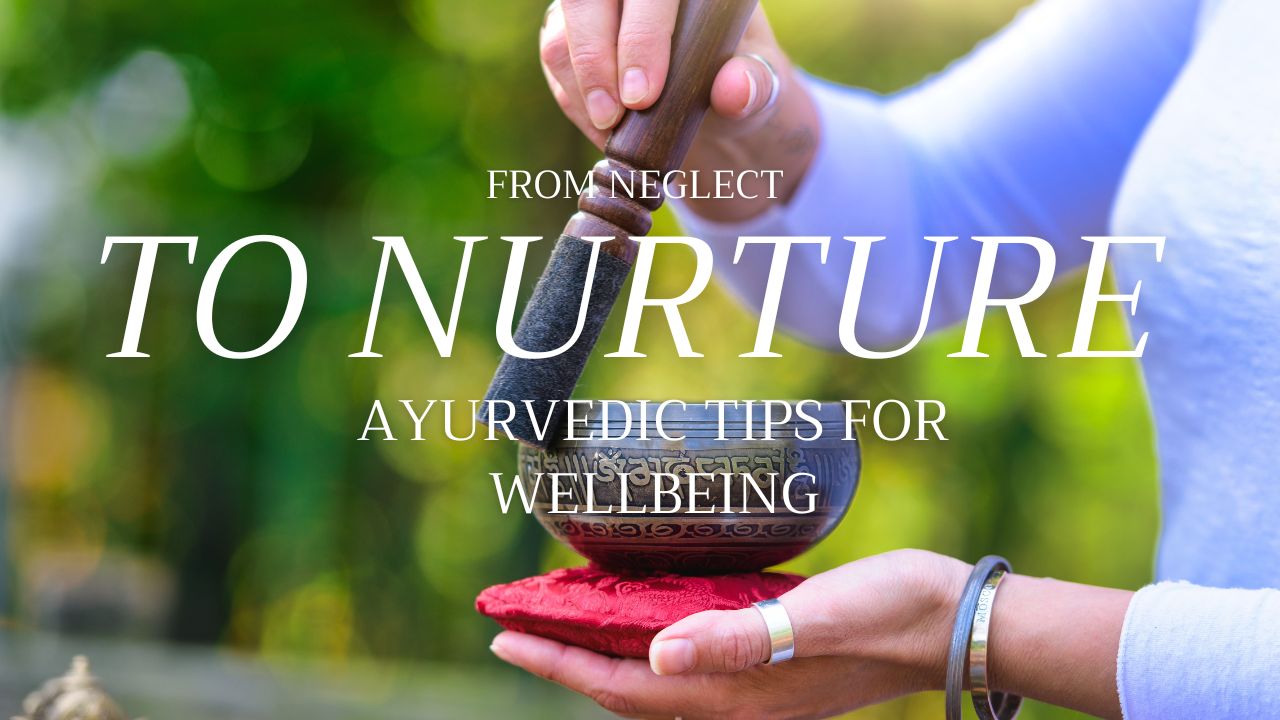The art of daily self-care, called “Dinacharya” in Sanskrit, is at the heart of Ayurvedic practices. This is especially important for women in today’s robotic world, since it has become difficult for many women to find a moment of relief. Women juggle family, career, raising children and maintaining a social life.
‘Nari Shakti‘ is the Oxford Dictionary’s Hindi word of 2018. While we are celebrating this now, in Ayurveda (the 5000-year-old ancient Vedic medicine system), the woman is considered to be “Shakti“, the mother and source of creation, in whose lap all of civilisation is cradled.
Self-care for women has an important place in Ayurvedic medicine. Ayurveda gives us a complete self-care system for achieving balance, known as Dinacharya (the daily routine). Ayurvedic self-care practices in Ayurveda Awareness Centre focus on balancing, prevention and healing from head to toe using diet, lifestyle, and treatments. It is one of the best gifts you can give your body! It’s a quick and positive way to unlock the body’s innate healing ability, revitalise the mind and empower you to maintain your body’s optimum health.
Sounds interesting, right? Here are a few self-care practices you can add to your daily self-care routine.
-
- Wake up before the sun.
Ayurvedic perspective says that waking up an hour and a half before sunrise helps you synchronise with the rhythm of the sun, which is a time of pure consciousness.
Any time between Brahma muhurta (an auspicious period that begins 1 hour 36 minutes before sunrise) is best to wake up. It is advised to wake up before the sun rises when there are loving (sattvic) qualities in nature that restore your peace of mind and freshness to the senses. If not before, then make sure you wake up with the sun but not after sunrise.
-
- Morning meditation is the key to starting your day.
Because of this state of pure consciousness, Ayurveda teaches us that the morning is the best time to meditate. Meditation is helpful no matter when you do it, but many say the morning routine is usually beneficial. After a balanced sleep and rest, your mind is fresh and ready for a new day.
-
- Scrape your Tongue.
Gently scrape the tongue from the back forward with your tongue scraper until you have scraped the whole surface for 7-14 strokes. This stimulates the internal organs, helps digestion, and removes dead bacteria. Ideally, Vata can use a gold scraper, a Pitta silver one, and Kapha copper. All people can use stainless steel.
-
- Start your day with some hot water, ginger, and honey.
There are both healthy and unhealthy foods. But if you want to start your day with something healthy, go to your kitchen, ladies! One of the most potent ingredients in your kitchen are hot water, ginger and honey!
As per Ayurveda, warm honey and ginger water are an excellent way to begin your day. It is recommended to consume this before any other beverage to stimulate Agni or digestion and prepare the body for elimination (bowel movement). Many people find that drinking warm ginger water on an empty stomach helps them lose weight because it increases the body’s metabolic rate.
-
- The art of Abhyanga massage.
Apply a decent amount of natural, food-based oils like cold pressed black seed sesame oil is great for Vata types, coconut-based oils for Pitta, or lighter sunflower oil for Kapha types. Specific herbal oils can be used instead, to enhance efficacy of these natural oils. Putting oil on the skin before you shower protects your body’s natural oils.
-
- Don’t forget your exercise.
The kind of exercise you should do usually depends on your dosha type, but according to Ayurveda, all exercise brings balance to the body and mind. We would suggest yoga to keep our body and mind balanced.
What are the three Ayurvedic Doshas?
Ayurveda is India’s age-old system of health and healing, and it reinforces the idea that everyone is born into this world with specific mental and physical attributes. These traits compose your mind-body constitution or Prakruti. Your constitution is expressed through three distinct doshas – Vata, Kapha and Pitta – biological energies throughout the human body and mind.
They handle all physical and mental processes, and a person’s distinctive ratio of the three doshas is said to determine their physical and mental constitution, personality and characteristics. It is like an individual blueprint for fitness and fulfilment. Known as vibrant energies that continuously change in reaction to our actions, thoughts, emotions, and other sensory information that feed our mind and body – living in the fulfilment of our natures indicates creating balance within our doshas.
When we live against our inherent natures, we support unhealthy patterns that result in physical and mental imbalances. Ayurveda suggests that we live most optimally by following cycles in nature and utilising practices that align ourselves with them.
Okay, so maybe this looks like a lot to get started with. If you’re stressed about not having enough time in the morning, you can select two things to begin with, and see how to incorporate more once you’re comfortable with your morning self-care routine. But most importantly, if you remove anything from the list, just remember to make space for self-love as you move with any practice – that’s the thing that matters!
What do we have for you?
As a course facilitator and practitioner at Ayurveda Awareness Centre, Neerja has acquired a deep understanding of human psychology and how emotional and mental hygiene helps to reverse the disease process and improve the quality of life. Students, including women from 135 countries, have taken up her online courses.
In addition to doing the things that bring us joy, we can aim to incorporate some key practices for women. If you want to connect with AAC, you can start small and keep it simple, adding more when you are ready- why not call us today?



